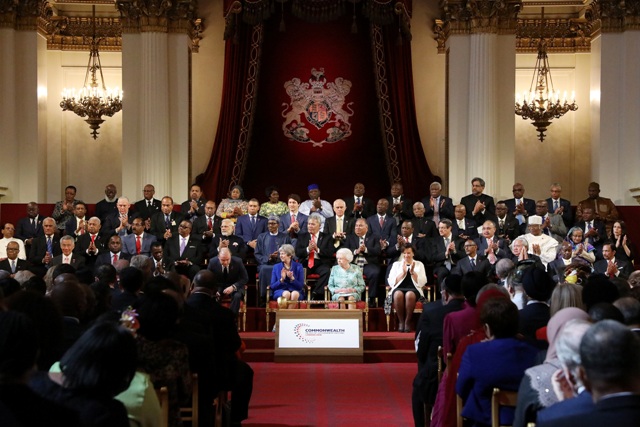 L.K. Sharma: For the Commonwealth "to be attacked is better than to be ignored". [source: CHOGM2018 Flickr]
L.K. Sharma: For the Commonwealth "to be attacked is better than to be ignored". [source: CHOGM2018 Flickr]
[A full version of this article appears in the latest issue of The Round Table: The Commonwealth Journal of International Affairs.Opinions expressed in blogs on this website do not reflect the position of the Round Table.]
There is no such thing as bad publicity. So, the Commonwealth should not be unduly concerned about the crescendo of criticism heard in recent weeks. To be attacked is better than to be ignored.
The Commonwealth had stopped figuring in public discourse. It had a higher profile when Secretary-General Shridath Ramphal led it from the front, at times displeasing the major power by energising the anti-colonial and anti-apartheid struggles.
Problems of the small developing member-nations were made newsworthy and donor nations sensitised to the critical need for assistance. Inter-governmental cooperation was promoted more vigorously. The summits used to be more open. At the receptions, a journalist could question Margaret Thatcher or shake hands with any world leader!
The London summit was held in a very complex set of new circumstances. The host member-nation showed extra enthusiasm because the decision to leave the European Union turned the Commonwealth cousins into crown jewels. It flaunted the old family connection to counter those forecasting doom resulting from leaving the European Union. The more the British government used the Commonwealth for this purpose, the more the Europhiles attacked the institution for being no substitute for the European Union.
The Commonwealth thus became a new target of attacks by the ‘realistic’ politicians and scholars. They fished out the dismal figures of inter-Commonwealth trade and investments to buttress their arguments in favour of not leaving the European Union, notwithstanding the Brexiteers winning the referendum. This provided fuel to the older critics in Britain and emerging economies where diplomats and leaders have been saying that the Commonwealth does not matter. It is about the past and hence fit to be consigned to the dustbin of history. Their view is supported by the economists who in the narrower national context suggest that rising inequality must be ignored in pursuit of economic growth. They would ask the least developed nations to pull up their socks!
The Commonwealth is one forum that pays special attention to the problems of small nations lacking power, influence and resources. Different sets of critics have different reasons to try and diminish or even demolish the Commonwealth. Some may scrutinise its record of achievements, which could have been better. Some dislike a forum that gives equal status to a country of 13,000 souls and one with a billion people or to a country with a gross domestic product less than the turnover of a mega corporation of another member-nation. A critical comment may also have a trace of racism because the complexion of the Commonwealth is quite different from that of the European community.
There are those who attribute Britain’s renewed interest in the Commonwealth to its desperate bid to win new markets for trade and investments. Some see it as part of Britain’s continuing search for identity and a bid to regain self-confidence lost due to the loss of the empire.
Some believe Britain is conjuring up a new version of the empire. These critics take a poor view of the new generations in the former colonies. The young people are free of the colonial mindset and will not let such a plan go forward. A young Indian is confident enough to deal with Prince Charles as an equal. In any case, Britain today is too feeble to undertake an imperial adventure. Niall Ferguson and his ilk can go on encouraging it to dream on.
The Commonwealth is getting more brickbats, thanks to social media and the new class of academics who imitate the populist politicians. They know that the people prefer to listen to strident voices encouraged by screaming TV anchors. The media friendly academics, driven by the publishers, generally discard the words ‘on the other hand’.
In response to such stridency, one feels like being devil’s advocate. Should one not welcome the fact that Britain is renewing its interest in the Commonwealth, for whatever reason?
L K Sharma is a freelance journalist



